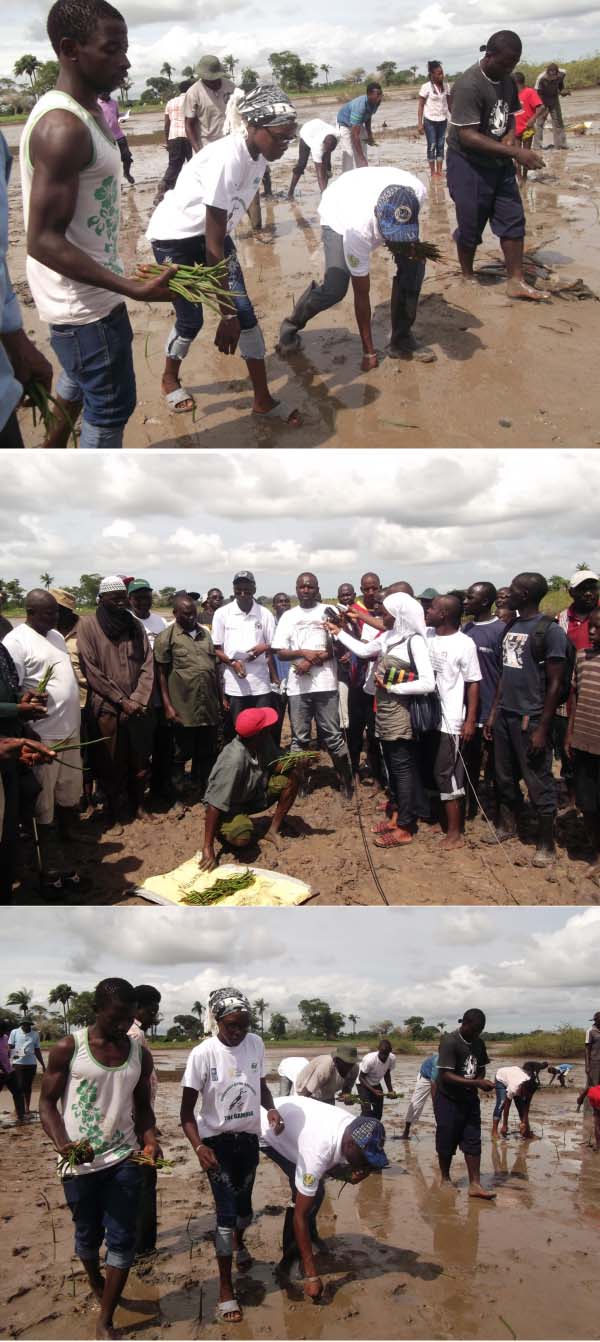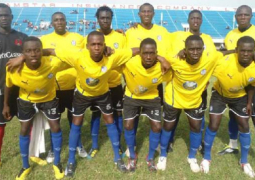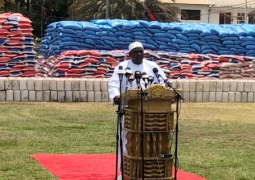
Speaking in an interview with Momodou Lamin Kassama, Director of the Department of Parks and Wildlife Management (DPWM), at Kassange village shortly after the planting exercise, he said the exercise was part of implementation of the Sustainable Land Management (SLM) project, and SLM PIWAM.
A development that the director said came from a long term discussion between the Department and PIWAM SLM, under the Natural Resource Component of the African Development Bank-funded project.
Kassama further explained that one of the project components is mangrove restoration; hence their intervention in the villages of Faraba Banta and Kassange with the overall objective of improving biodiversity.
He explained that wetlands are the richest for biodiversity, and that mangroves are very good in stabilizing wetland ecology, particularly creating conducive breeding grounds for fish.
Further speaking on the importance of the mangroves, Kassama said many aquatic species depend on mangroves for their survival, and that the mangrove ecosystem gives a stabilizing platform to the river bank.
“It also provides roosting and resting grounds for water birds,” he added.
He also spoke of the value of mangroves in terms of oyster harvesting, which he noted is vital for socio-economic development in the communities.
“Many women depend on oyster for livelihood; not only to support their families in terms of food, but also in solving school fees and other social problems,” he added.
Throwing more light on the project, Mr. Kassama said this was the second phase of the planting exercise to cement the gains from the previous one in these villages, and that it involves more than 10 communities in the North and South Banks of the country.
Reacting to the issue of sustainability, the Wildlife Management director pointed out that they may not have resources to be policing the planted mangroves, but have done extensive ground work with the communities, and have established a strong relationship with the villages.
The sustainability of the initiative could only be ensured with the full participation of the communities involved, he added.
“They are well-trained and it is going to be a community-managed area. We can only give technical support and advice,” he said.
Kassama added that they would be sending a monitoring team to inspect the planted mangroves once a month, which would advise the communities on how to manage the place.
The Parks and Wildlife director said it is their plan to replicate the success of the project elsewhere in the country to enhance biodiversity protection.
Abdoulie Sawo, eco-tourism officer at the Department of Parks and Wildlife Management and head of the programme, noted that most communities are now affected by salt intrusion in their rice fields and vegetable gardens.
To counter this, he said, they thought it wise to also plant mangroves, as they are salt-tolerant and could prevent or minimize salt intrusion into rice fields.
“Mangroves have a lot of importance in terms of fish nursery and serving as breeding grounds for fish before they go to the ocean,” he added.
Sawo further said they also have some strategies to enhance the livelihood of the women who are engaged in oyster collection, without having them endanger the mangroves through cutting for oysters.
“We have to train them on other oyster collection techniques,” he said.
The eco-tourism officer added that all the farmland and cultivation sites are well secured in the beneficiary villages.
He went on to highlight the importance of mangroves, pointing out that they could help prevent erosion and other climate hazards.
Abdou Rahman Sallah thanked the department for providing technical support to the Biodiversity Action Journalists Gambia.
“We have a fruitful relationship with the Department of Parks and Wildlife Management,” he added.




